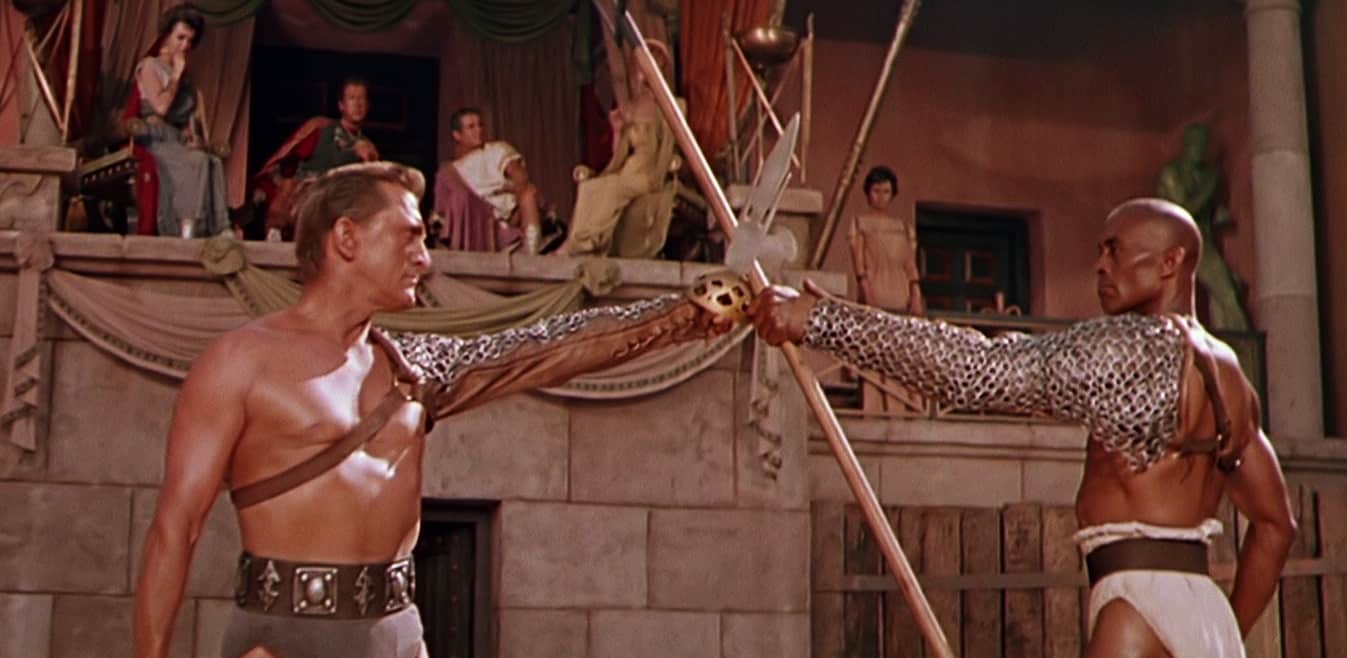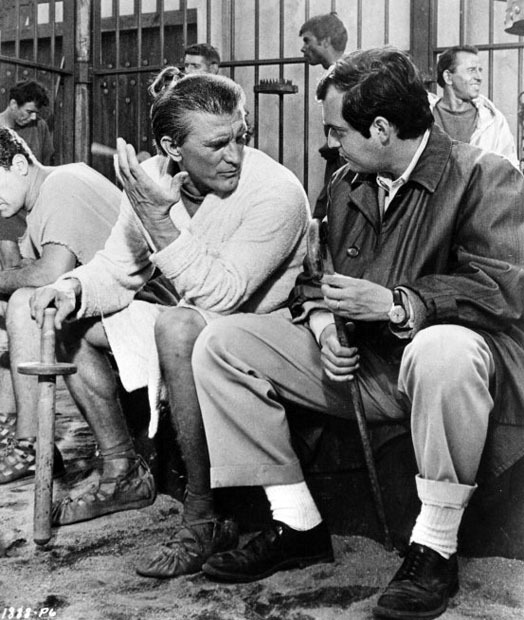 Parasite (2019) is a film by South Korean director Bong Joon-Ho and the first non-English language film to win Best Picture at Hollywood’s Academy Awards. The film examines the effects of wealth disparity through two families on opposing ends of the social spectrum.
Parasite (2019) is a film by South Korean director Bong Joon-Ho and the first non-English language film to win Best Picture at Hollywood’s Academy Awards. The film examines the effects of wealth disparity through two families on opposing ends of the social spectrum.
Parasite was an Oscar darling. As well as Best Picture, it received the following awards and nominations in 2020:
- Best Director: won
- Best Original Screenplay: won
- Best International Feature Film: won
- Best Production Design: nominated
- Best Film Editing: nominated
It was the first Korean film to ever win, let alone be nominated for, an Academy Award.
The Kim family live in a semi-basement apartment. They are resourceful but uneducated. Their fortunes turn when son Ki-woo’s friend offers him a job tutoring the daughter of the affluent Park family. Ki-woo accepts, but to do so he must pass as a university student. Once in, Ki-woo helps his family get hired too, all lying about their qualifications and relation to one another.
 The Parks live in a mansion designed by its architect former owner. They can afford tutors for their children, a chauffeur and a full-time housekeeper. The Parks are friendly and ‘nice’, though haughty and naïve. ‘She’s nice because she’s rich…’ Mrs Kim comments. ‘Hell if I had all that money I’d be nice too. Nicer even!’
The Parks live in a mansion designed by its architect former owner. They can afford tutors for their children, a chauffeur and a full-time housekeeper. The Parks are friendly and ‘nice’, though haughty and naïve. ‘She’s nice because she’s rich…’ Mrs Kim comments. ‘Hell if I had all that money I’d be nice too. Nicer even!’
Tonal shifts mark each act. While starting as a black comedy, the film takes a sinister turn and effortlessly blends thriller, horror and gothic. Careful attention is paid to its pacing and no camera shot, no line of dialogue, is without meaning or consequence. Symbolism abounds. The official premise describes Parasite as a ‘pitch-black modern fairy tale.’
An issue with film these days is a lack of originality. Nine out of ten of the 2010’s top-grossing films were either reboots, sequels or (in the case of Star Wars) both. Superhero flicks, or most big-budget all-ages action-adventure films, are often too predictable. Even if a film makes is visually stunning, well-acted or slick, it is all for nought if the audience immediately knows how it will end. The more films one watches, the more one notices clichés and tropes. Conversely, shoehorning twists or deux ex resolutions ruins a narrative if the unpredictability makes no sense. To work, a twist must be both surprising and plausible. Parasite achieves the balance perfectly.
The opening scene shows the Kim family searching for a new wifi connection after a password encrypts the old. They are all capable workers, but in an economy where ‘an opening for a security guard attracts 500 university graduates’, their merit is irrelevant. Connections are paramount. Only through social connections can the Kims can find stable employment. The film’s stairway motif represent its characters’ social standing; whether affluence, near-poverty and destitution.
Despite being one of the wealthiest nations in the world, South Korea suffers social inequality. In 2015 the top 10% controlled 66% of its wealth. Status and money are everything. Success depends on getting into the right university and the stress shows: South Korea has the second-highest rate of suicide in the OECD. In a society obsessed with image and hierarchy, however, the popularity of Parasite and its critique of social inequality shows people are changing the way they think.
Sources: IMDB, New York Times, VOA News
See Also:

 The Irishman (2019) is the latest film from director Martin Scorsese. Like GoodFellas (1989) and Casino (1995), it is a crime epic set in the glory days of the American mafia. Scorsese’s muse Robert De Niro stars alongside genre mainstays Al Pacino and Joe Pesci in their first film together. Steven Zaillian of Schindler’s List wrote the screenplay. Released on Netflix, it runs a hefty 3.5 hours. The film tells the story of Irish-American mobster Frank Sheeran and the 1975 disappearance of union boss Jimmy Hoffa. It is based on Sheeran’s biography, ‘I Heard You Paint Houses’ – code for contract killing.
The Irishman (2019) is the latest film from director Martin Scorsese. Like GoodFellas (1989) and Casino (1995), it is a crime epic set in the glory days of the American mafia. Scorsese’s muse Robert De Niro stars alongside genre mainstays Al Pacino and Joe Pesci in their first film together. Steven Zaillian of Schindler’s List wrote the screenplay. Released on Netflix, it runs a hefty 3.5 hours. The film tells the story of Irish-American mobster Frank Sheeran and the 1975 disappearance of union boss Jimmy Hoffa. It is based on Sheeran’s biography, ‘I Heard You Paint Houses’ – code for contract killing.
 In this fairy tale if Rick is the knight and Cliff the squire, then ‘doomed’ Sharon Tate is the princess. In reality the actress (right) was married to director Roman Polanski and brutally murdered – along with her three friends and unborn child – on August 1969 by the Manson Family. In the film, her moving next door to Rick’s mansion on Cielo Drive with her husband is a chance for Rick to renew his career. Tarantino took flack for Robbie’s lack of lines, though this was likely on purpose as the naturally shy Tate had only just hit the spotlight when she died. Publicly she was seen but seldom heard.
In this fairy tale if Rick is the knight and Cliff the squire, then ‘doomed’ Sharon Tate is the princess. In reality the actress (right) was married to director Roman Polanski and brutally murdered – along with her three friends and unborn child – on August 1969 by the Manson Family. In the film, her moving next door to Rick’s mansion on Cielo Drive with her husband is a chance for Rick to renew his career. Tarantino took flack for Robbie’s lack of lines, though this was likely on purpose as the naturally shy Tate had only just hit the spotlight when she died. Publicly she was seen but seldom heard.

 Spartacus is the story of a man who challenges the might of Rome. He is born a slave in the end days of the Roman Republic and forced to fight his fellow men as entertainment. But Spartacus has other ideas. During a dispute in the kitchens, he kills his trainer and inspires the gladiators to revolt. They escape and roam the Italian countryside, ravaging Roman estates and freeing slaves as they go. Using the techniques he learnt as a gladiator, Spartacus builds a formidable army and humbles the legions sent his way.
Spartacus is the story of a man who challenges the might of Rome. He is born a slave in the end days of the Roman Republic and forced to fight his fellow men as entertainment. But Spartacus has other ideas. During a dispute in the kitchens, he kills his trainer and inspires the gladiators to revolt. They escape and roam the Italian countryside, ravaging Roman estates and freeing slaves as they go. Using the techniques he learnt as a gladiator, Spartacus builds a formidable army and humbles the legions sent his way. Kirk Douglas plays Spartacus. Well-built and charismatic, he fits the role well. At 45, Douglas was conscious of being upstaged and used his position as executive producer to insist no one younger be cast as a gladiator. His performance makes up for this nonetheless.
Kirk Douglas plays Spartacus. Well-built and charismatic, he fits the role well. At 45, Douglas was conscious of being upstaged and used his position as executive producer to insist no one younger be cast as a gladiator. His performance makes up for this nonetheless. Dalton Trumbo wrote the screenplay from behind the Hollywood blacklist. Once Hollywood’s best paid writer, he fell victim to the Red Scare after refusing to ‘name names’ of other Hollywood communists.
Dalton Trumbo wrote the screenplay from behind the Hollywood blacklist. Once Hollywood’s best paid writer, he fell victim to the Red Scare after refusing to ‘name names’ of other Hollywood communists.


